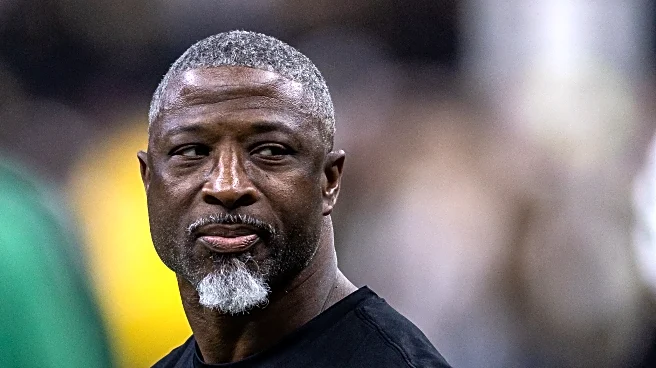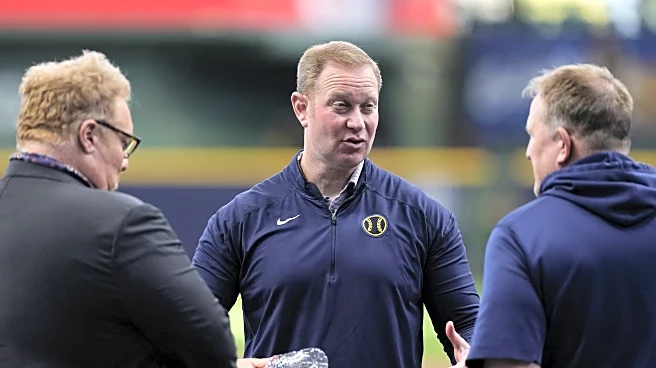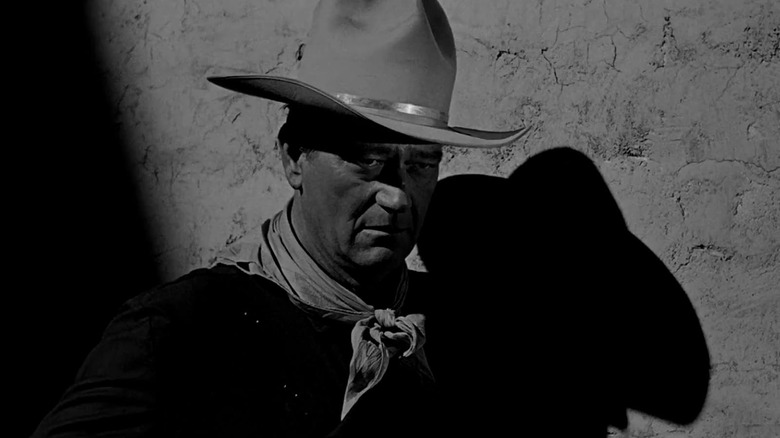
Long before he became the veritable screen icon we know him as today, John Wayne began his show business career by literally knocking over director John Ford. The pair established their long-running collaborative
relationship, which saw them work together on 14 features, in an unusual way when a young Wayne, then a USC student, encountered Ford during his summer work as a prop man. In Wayne's recollection, the director swept his feet out from under him in order to test his mettle as a football player, only for the young Duke to give Ford another shot before kicking him in the chest.
That seemingly regrettable first meeting actually appeared to endear Ford to the young prop man, with the director casting Wayne in his 1928 film "Hangman's House." The role was small, to say the least. Wayne was given a non-speaking part as a spectator at a horse race (the kind of non-role that Sylvester Stallone has referred to as "atmosphere"). It wasn't until a decade later that Ford actually gave Wayne a starring role in his 1939 classic "Stagecoach," allowing the young star to finally break into the big leagues after more than a decade of churning out "Poverty Row" Westerns.
The same confrontational energy that characterized the pair's first meeting seemed to carry over to "Stagecoach," where Ford and Wayne clashed over the filmmaker's insensitive directing style, which involved pushing Wayne to do take after take despite him only appearing in the background of certain scenes. This contentious working relationship remained throughout the following decades, which would suggest Wayne wasn't all that fond of the man that tormented him all those years. But it seems the screen legend always retained a sense of what made Ford such a great filmmaker.
Read more: Every Taylor Sheridan Movie, Ranked From Worst To Best
John Wayne Respected John Ford's Filmmaking For Two Reasons
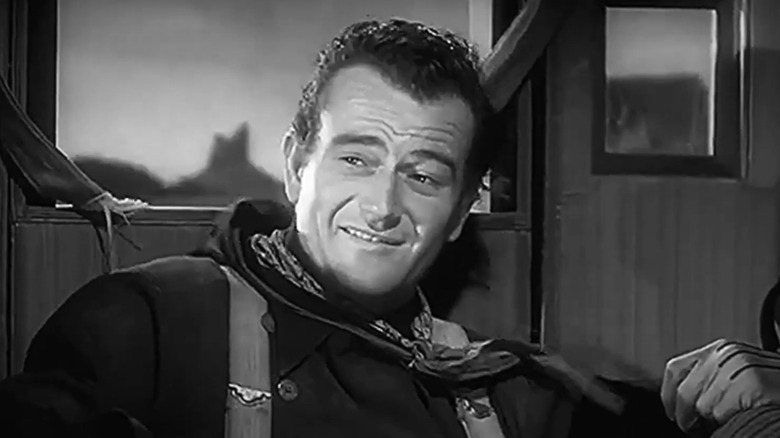
In a 1976 interview, Jim Whaley asked John Wayne what set John Ford apart from other directors. Rather than diverging from the question and highlighting Ford's aggressive manner, which at times bordered on abuse, the Duke replied by extolling the man's talents in two ways. "I think [Ford] would have been the finest painter in the country," he said, "because he knew how to use his paint. His people, his compositions were all magnificent, and I think he would have been, and he is, probably as great a director as I know."
Ford's eye for composition clearly made an impression on Wayne then, but the actor also admired his longtime collaborator's editorial eye when it came to scripts. "In his early days he had great patience with writers," said the Duke, "and he would make them write a scene one way and then [...] make them write it another way, until he wore them out. And then he'd reach down and out of a paragraph, take three lines here, two lines here, and cut through all the hypocrisy, the phoniness, and get right to the most important critical part of the speech." According to Wayne, Ford lost his patience for that kind of reworking of scripts as he got older, but as the actor put it, "that didn't stop him making great pictures."
Clearly, then, Wayne remained an admirer of Ford throughout his career, despite the fact he clearly acknowledged the director's proclivity for pushing his cast too far. Case in point: Wayne saved his young co-star, John Agar, from Ford's wrath on the "Fort Apache" set by explaining the director had given him a hard time in the early days and encouraging Agar to stick it out.
John Wayne's Love For John Ford Was Genuine
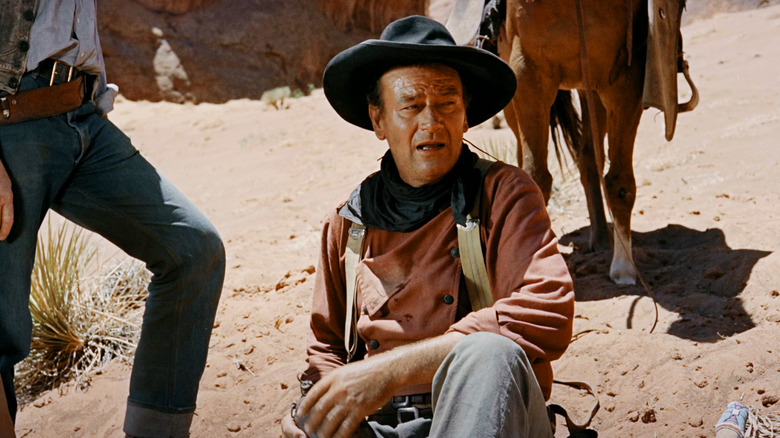
John Wayne was able to overlook John Ford's questionable directing methods to the point he remained fond of the filmmaker throughout his life. His comments to Jim Whaley, for example, came after he'd shot what would turn out to be his final film, "The Shootist," in which he played an aging gunslinger who was very much an on-screen analogue of the then ailing Wayne himself. As such, it might seem as though the actor was being a tad sentimental when praising Ford as "great." But he'd always been nothing but complimentary about the man who gave him his big break.
The admiration was seemingly mutual. Ford waited to give Wayne a starring role because he knew the youngster needed to hone his craft before he debuted as Henry, the Ringo Kid in "Stagecoach." The actor's performance in that picture may have been pulled out of him by force, but it was all for the greater good. After that movie, Wayne's star began to rise in earnest, with Ford ultimately casting Wayne in 13 of his other films, including 1956's "The Searchers," which is arguably the actor's greatest and most well-known project ever. After that movie, Wayne even penned a letter to Ford, writing, "it's just a wonderful picture. You got great performances out of everyone, and it has a raw brutalness without any pettiness or meanness. All I can say is -- thanks again, Coach."
Wayne's later comments about Ford were clearly an honest appraisal of his longtime collaborator and not tainted by nostalgia or sentimentality. He really did think Ford was one of the best to ever do it, and many of the duo's collaborations stand as a testament to that point of view.
If you're looking for the easiest way to keep up with all the major movie and TV news, why not sign up to our free newsletter?
Read the original article on SlashFilm.
